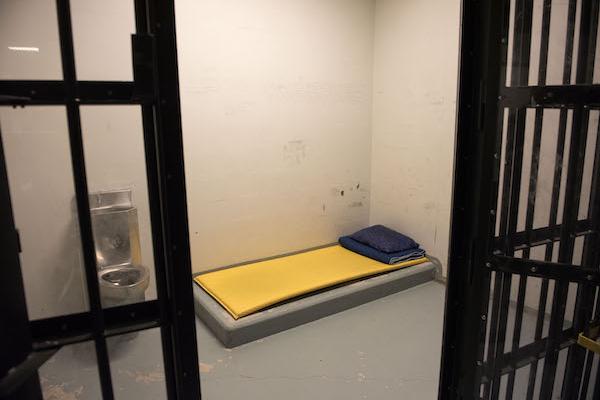Radicalisation is a phased and complex process in which an individual or a group embraces a radical ideology or belief that accepts, uses or condones violence, including acts of terrorism, to reach a specific political or ideological purpose.
While radicalisation is not a new phenomenon, the trends, means and patterns of radicalisation evolve and responses have to be adapted. Home-grown lone actors and (returning) foreign terrorist fighters raise security issues and specific challenges for prevent work. Internet platforms, including social media, can be abused by violent extremists, terrorist groups and their sympathisers by providing new opportunities for mobilisation, recruitment and communication.

The Project Based Collaborations are projects led by EU countries, with the support of the European Commission, to foster exchange and cooperation on priority topics on prevention of radicalisation.

Victims of terrorism deserve special attention and support at national and EU level. This is done through specific laws, networks and cooperation with partner countries and international organisations.

The EU supports projects, knowledge exchange and capacity building to prevent radicalisation in prisons and aid the rehabilitation and reintegration of inmates.
Terrorists use the internet to radicalize, recruit, and facilitate carrying out terrorist attacks. The European Commission has put forward a series of voluntary and legislative measures and initiatives to help prevent this.
The European Commission provides financial support to projects and initiatives to better understand and counter the process of radicalisation leading to violent extremism and terrorism.
The Hub's objective is to promote a coordinated EU-level approach and offer concrete services and products to assist experts in Member States and priority third countries in their efforts to prevent radicalisation and counter violent extremism.
Preventing radicalisation
Radicalisation leading to violent extremism and terrorism is a phenomenon of concern in EU Member States and beyond. The 2020 Counter-Terrorism Agenda puts forward a number of initiatives to support to Member States in areas such as online radicalisation, prisons and reintegration, as well as empowerment of communities. For that purpose, the Commission makes use of different policy instruments, which include:
- countering terrorist propaganda and illegal hate speech online,
- addressing radicalisation in prisons,
- promoting inclusive society, education and EU common values,
- boosting research, evidence building, monitoring and networks,
- strengthening international cooperation and
- enhancing the rights of and support to victims of terrorism and remembrance.
The Commission also supports EU Member States to develop their prevention policies by creating appropriate conditions for the exchange of experiences and good practices and to strengthen capabilities in preventing and countering radicalisation.
Practical Member State support in the form of workshops or advisory team deployments is delivered by the EU Knowledge Hub on Prevention of Radicalisation.

Terrorist content online
The continued presence of terrorist content on the web is a serious risk for security of citizens and to society at large. Terrorists misuse the internet to spread their messages to intimidate, radicalise, recruit, and facilitate carrying out terrorist attacks. To tackle this threat, the European Commission put forward a legislative proposal in 2018 for a Regulation to address the dissemination of terrorist content online, which was adopted by the European Parliament in April 2021. The Regulation sets clear and transparent rules applicable to online platforms established in the EU to ensure that:
- when terrorist content is identified, it is taken down within the hour,
- online platforms take measures to ensure that their services cannot be misused.
Strong safeguards are put in place to ensure that freedom of speech is protected. Learn more about the key elements of the regulation from the following factsheet:
The European Commission is also working in a voluntary public-private partnership with the tech industry to tackle new and emerging challenges under the EU Internet Forum.
Radicalisation in prisons, rehabilitation and reintegration
Managing terrorist and radicalised offenders is a priority for both EU Member States and the Commission. Recent years have seen an increase in the number of offenders convicted for terrorism related offences across the EU, as well of those convicted of other offenses, but radicalised in prison.
In recent years, EU Member States have put a number of measures in place, including risk assessment tools, special detention regimes, rehabilitation and reintegration programmes, trainings for prison and probation staff and structures for information exchange and multidisciplinary cooperation for management of ex-offenders after release. This work is supported by the Commission through project based collaboration between Member States, to address challenges related to radicalisation in prison, such as adapting prevent work to gender, addressing mental health issues and the religious dimension in rehabilitation programmes.
The European Commission supports the work of EU Member States through specialised funding programmes and networks.
Policy timeline
- 2020Counter Terrorism Agenda
The Agenda builds on the Security Union Strategy and puts forward a number of initiatives to support Member States in areas such as online radicalisation, prisons and reintegration, as well as empowerment of communities. It also focuses on the need for a more structured and evidence-based approach in knowledge building and transfer.
- 2020Security Union Strategy
The Strategy sets out a whole-of-society approach to security. It recognises the achievements in preventing radicalisation and calls for a further streamlining of EU policies, initiatives and funds. Priority areas include early detection and risk management, resilience building, as well as rehabilitation and reintegration in society.
- 2018EU Cooperation mechanism
This mechanism aims at better involving Member States in setting strategic priorities at EU level through the Steering Board on Union Actions on Radicalisation. The mechanism also strengthens the coordinating and supporting role of the Commission. This is enhancing EU networks and initiatives and improving the collaboration between policy makers, practitioners and researchers for an effective and evidence-based approach against radicalisation.
- 2017High-Level Commission Expert Group on radicalisation
In 2017, the Commission set up a High-Level Commission Expert Group on radicalisation. Its goal was to enhance the efforts to prevent and counter radicalisation leading to violent extremism and terrorism, and to improve coordination and cooperation between relevant stakeholders. The group delivered its Final Report on 18 May 2018 accomplishing its mandate, leading to the creation of the EU Cooperation mechanism.
- 2016Communication supporting the prevention of radicalisation leading to violent extremism
The Communication supporting the prevention of radicalisation leading to violent estremism focuses on how work at EU level can support EU countries in seven specific areas:
- supporting research, evidence building, monitoring and networking,
- countering terrorist propaganda and hate speech online,
- addressing radicalisation in prisons,
- promoting inclusive education and EU common values,
- promoting an inclusive, open and resilient society and reaching out to young people,
- the security dimension of addressing radicalisation and,
- the international dimension.
- 2015EU Internet Forum
The EU Internet Forum brings together governments, Europol, and industry to ensure terrorist propaganda is taken down as quickly as possible.
EU Networks
To strengthen cooperation and the exchange of knowledge and practices between the different stakeholders taking part in the prevention of radicalisation and violent extremism, the Commission established a number of networks.
Networks involving the Commission
EU Knowledge Hub on Prevention of Radicalisation
The EU Knowledge Hub on Prevention of Radicalisation brings together practitioners, policymakers and researchers working on prevention across Europe and in priority third countries. The creation of the Hub is outlined in the EU Counter-Terrorism Agenda 2020. It supports the development and implementation of policies and strategies based on shared knowledge and expertise. It fosters collaboration among stakeholders to address the challenges of radicalisation, emphasising an integrated, policy-driven approach and a whole-of-society perspective.
EU Internet Forum
The EU Internet Forum brings together the European Commission, EU and EFTA Member States, internet industry and Europol. Its main objective is to tackle illegal content online, in particular:
- to reduce terrorist and violent extremist content
- to empower civil society to offer effective alternative narratives online, including through the Civil Society Empowerment Programme
- to step up the fight against child sexual abuse online
Radicalisation Awareness Network (RAN)
The Radicalisation Awareness Network (RAN) an EU-wide umbrella network connecting key first-line practitioners and field experts, now about 7000. They are social and health workers, teachers, exit workers, prison staff, civil society organisations, including victims' groups, as well as representatives from local authorities, law enforcement, counter terrorism specialists and academics. They exchange ideas, experiences, identify good practices and issue recommendations on how to best tackle all forms of radicalisation.
Network of prevent policy makers on radicalisation
The Network of prevent policy makers on radicalisation provides advice and expertise to the Commission in relation to the development of closer cooperation at EU level on EU prevent policy. This is done through the exchange of expertise and experiences, the implementation by Member States, at national, regional and local level, of EU prevent policy and through the exchange of expertise and experiences, project-based collaboration, study visits and voluntary peer reviews.
Other networks
European Strategic Communications Network (ESCN)
The European Strategic Communications Network (ESCN 2015-2019) was a network of EU countries, funded by the European Commission, which collaborated to share analysis, good practice and ideas on the sustainable use of strategic communications in countering violent extremism.
European Organisation for Prisons and Correctional Services (EuroPris)
The European Organisation of Prison and Correctional Services (EuroPris) is a non-political, non-governmental organisation founded in 2011. The initiative to establish EuroPris happened during the Swedish EU Presidency in 2009, and was brought forward by the European countries of the International Roundtable for Correctional Excellence.
European Prison Training Academies (EPTA)
The European Prison Training Academies (EPTA) was initiated in November 2008 at the French National Correctional Administration Academy (ENAP). It gathers training academies of Europe and promotes the exchange of good practices and debates on specific issues related to correctional training.
European Judicial Training Network
The European Judicial Training Network (EJTN) is the principal platform and promoter for the training and exchange of knowledge of the European judiciary. EJTN represents the interests of over 120,000 European judges, prosecutors and judicial trainers across Europe.
Cooperation and prevent strategies of EU countries
As part of the Counter-Terrorism Agenda adopted in 2020, the Commission will promote cooperation and dialogue with all security stakeholders, including EU security and intelligence services.
Many EU countries have developed strategies, action plans and other initiatives to tackle radicalisation. EU countries have also launched specific projects among like-minded member countries (so called Project Based Collaborations).
Documents
- Strategic Orientations 2024-2025
- 2022-2023 Strategic Orientations on a coordinated EU approach to prevention of radicalisation
- 2021 Strategic Orientations on a coordinated EU approach to prevention of radicalisation
- List of national prevention strategies
- Targeted study on the assessment of the Radicalisation Awareness Network and annex
